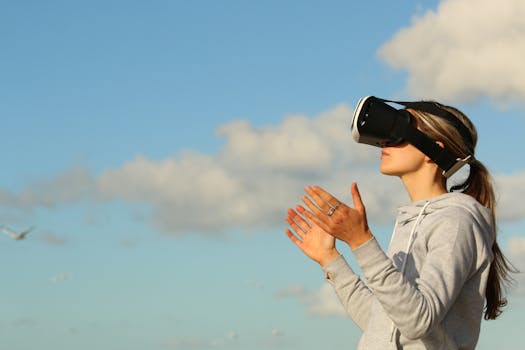Virtual Reality: A Technology with Applications Beyond Gaming
Virtual Reality (VR) has often been pigeonholed as a technology primarily for gaming enthusiasts. However, its potential extends far beyond the realm of entertainment. As VR technology continues to evolve, it is finding applications in various sectors, including education, healthcare, real estate, and even therapy. This article explores the diverse applications of VR, showcasing its transformative impact on multiple industries.
The Evolution of Virtual Reality
Virtual Reality has its roots in the 1960s, but it has gained significant traction in recent years due to advancements in technology. The introduction of affordable VR headsets, such as the Oculus Rift and HTC Vive, has made it accessible to a broader audience. According to a report by Statista, the global VR market is expected to reach $57.55 billion by 2027, indicating a growing interest in its applications beyond gaming.
VR in Education: A New Frontier for Learning
One of the most promising applications of VR is in the field of education. Traditional teaching methods can often be limiting, but VR offers immersive experiences that can enhance learning outcomes. Here are some ways VR is being utilized in education:
- Virtual Field Trips: Students can explore historical sites, museums, and even outer space without leaving the classroom.
- Interactive Simulations: Subjects like biology and chemistry can be taught through virtual labs, allowing students to conduct experiments safely.
- Skill Development: VR can simulate real-world scenarios for vocational training, such as medical procedures or machinery operation.
For instance, the University of Illinois has implemented VR technology in its medical training programs, allowing students to practice surgical techniques in a risk-free environment. This hands-on experience significantly enhances their learning and retention of complex procedures.
Healthcare: Revolutionizing Patient Care and Training
The healthcare sector is another area where VR is making significant strides. From patient treatment to medical training, VR is proving to be a valuable tool:
- Therapeutic Applications: VR is used in exposure therapy for patients with PTSD, phobias, and anxiety disorders, helping them confront their fears in a controlled environment.
- Medical Training: Surgeons can practice complex procedures in a virtual setting, improving their skills without the risk of harming patients.
- Patient Education: VR can help patients understand their medical conditions and treatment options through immersive visualizations.
A notable example is the use of VR by the University of Washington, where medical students use VR simulations to practice surgeries. This innovative approach has shown to improve their confidence and competence in real-life situations.
Real Estate: Transforming Property Viewing
In the real estate industry, VR is changing how properties are marketed and sold. Virtual tours allow potential buyers to explore homes from the comfort of their own space. This technology offers several advantages:
- Increased Engagement: Virtual tours can attract more potential buyers by providing an interactive experience.
- Time Efficiency: Buyers can view multiple properties in a short amount of time, streamlining the decision-making process.
- Global Reach: Real estate agents can showcase properties to international clients without the need for travel.
Companies like Matterport have developed VR solutions that enable real estate agents to create 3D models of properties, allowing clients to navigate through homes as if they were physically present.
Conclusion: The Future of Virtual Reality
Virtual Reality is a technology that transcends the boundaries of gaming, offering innovative solutions across various sectors. From enhancing educational experiences to revolutionizing healthcare and transforming real estate, VR is proving to be a versatile tool with immense potential. As technology continues to advance, we can expect even more applications to emerge, further integrating VR into our daily lives.
In summary, the key takeaways from this exploration of VR’s applications include:
- VR enhances educational experiences through immersive learning.
- In healthcare, VR aids in therapy and medical training.
- Real estate benefits from virtual tours, increasing engagement and efficiency.
As we look to the future, it is clear that Virtual Reality will play a crucial role in shaping various industries, making it a technology worth watching.
